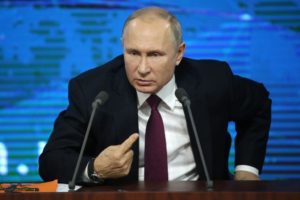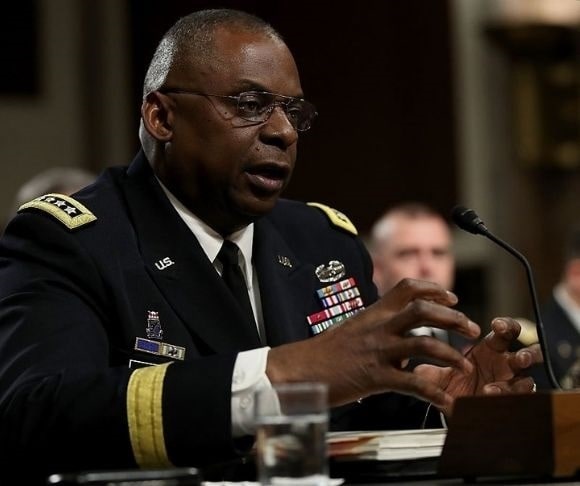The annual Reagan National Defense Forum 2021 featured many speakers who listed military threats to the United States. Of course, a near-term one — no surprise — is combat troops maneuvering on Ukraine’s border. But the primary focus of the lectures, interviews, and panels was China. On the Ukraine crisis, keynote speaker Secretary of Defense Lloyd Austin made clear the Kremlin’s buildup of combat troops on Kyiv’s doorstep is of immediate concern, and the United States is following developments closely. The problem is, as Liberty Nation recently reported, “following developments closely” is not the same as taking action.
Nonetheless, the defense secretary registered his apprehension at what Russia is doing and reminded the audience in an interview with Fox News’ Bret Baier:
“[A]s we look at the numbers of forces that are in the border region, as we look at some of the things that are occurring in the information space, as we look at what’s going on — in the cyber domain, it really raises our concern.”

Vladimir Putin (Photo by Mikhail Svetlov/Getty Images)
To address that point, Baier asked, “But what happens if Putin does invade Ukraine? What does the U.S. do?” The defense secretary skirted the questions, saying that he would not “speculate on different scenarios,” but rather, “We’re certainly committed to ensuring that Ukraine has what it needs to protect its sovereign territory.” Austin would not go any further in explaining what the United States was prepared to do to address Moscow’s bellicose behavior.
When the subject turned to China, Baier asked if the military was taking a different “tone” regarding China. “Do you think it’s time to speak more boldly or clearly when referring to China, the communist party, and its communist ambitions?” The query may have risen from Austin’s keynote speech in which he referred to China as a “challenge” and downplayed direct head-to-head engagement with Beijing with comments such as:
“… a lesson that I learned over four decades in uniform: In war and in peace, we’re always stronger when we work together with our friends. And that defines our approach to the China challenge. No, we’re not seeking an Asian version of NATO or trying to build an anti-China coalition. And we’re not asking countries to choose between the United States and China.”
Wait just a second. Of course, we’re asking countries to choose between us and them. We want countries to reject vicious totalitarian suppression of human rights and choose democracy. Whereas the U.S. defense chief may have been reluctant to “speak more boldly,” Frank Kendall, the new secretary of the Air Force, was less reserved with his comments during a panel discussion titled “Dollars and Sense: Strategy-Based Budgeting for Today and Tomorrow.” In fact, it was Kendall’s unflinching approach to China that made what he had to say noteworthy.
 No doubt encouraging for the government in Taipei, Liam Gibson reporting for the Taiwan News said that Kendall expressed concern that some existing legacy U.S. aircraft are not up to facing the People’s Liberation Army (PLA) forces. Kendall explained the United States has operated in the Middle East in a permissive air environment. Those platforms, which were useful in that environment, “would not be up to the task of taking China, which, by contrast, has strategically developed its air force to take down high-value American assets.” The Air Force secretary added insightfully, “If it doesn’t threaten China, then why are we doing it?”
No doubt encouraging for the government in Taipei, Liam Gibson reporting for the Taiwan News said that Kendall expressed concern that some existing legacy U.S. aircraft are not up to facing the People’s Liberation Army (PLA) forces. Kendall explained the United States has operated in the Middle East in a permissive air environment. Those platforms, which were useful in that environment, “would not be up to the task of taking China, which, by contrast, has strategically developed its air force to take down high-value American assets.” The Air Force secretary added insightfully, “If it doesn’t threaten China, then why are we doing it?”
As has been the case historically, the Reagan National Defense Forum brings informed voices every year to discuss acute defense issues and threats as well as chronic U.S. national security problems. Austin kept to the middle of the page, maintaining the United States is “concerned” about Russia on the Ukraine border, and China remains a “pacing” challenge. By contrast, the Air Force secretary was more assertive in what was needed to counter an aggressive Chinese Communist Party threat. Perhaps the American people are inclined to favor the latter “tone” over the former.
The views expressed are those of the author and not of any other affiliation.
~ Read more from Dave Patterson.




